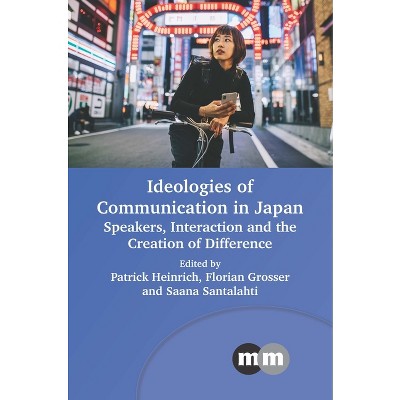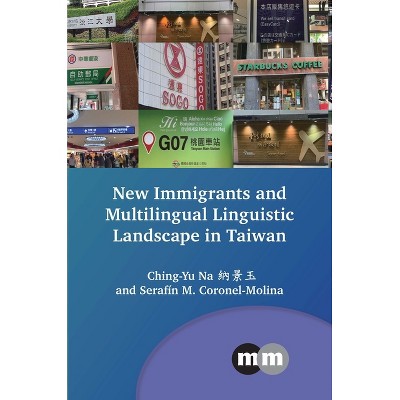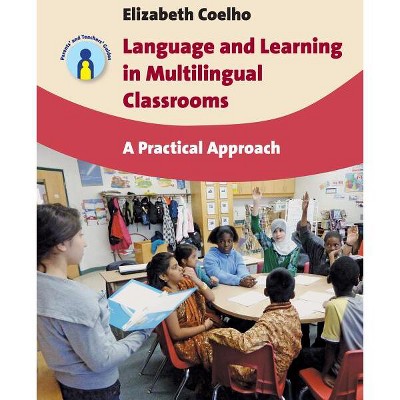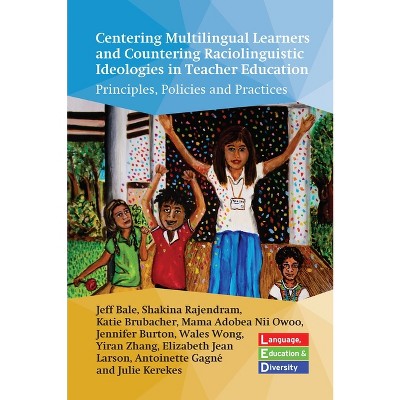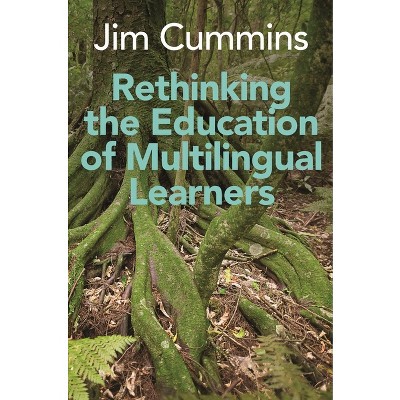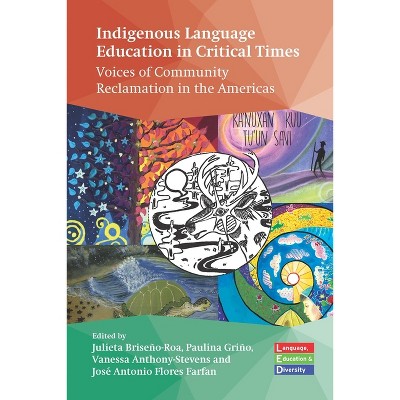Language Politics in Tunisia - (Multilingual Matters) by Fethi Helal & Joseph Lo Bianco (Hardcover)

About this item
Highlights
- This book offers both a nuanced picture of language ideologies and language policies in post-Arab Spring Tunisia and a detailed critical and interdisciplinary model of Language Policy and Planning.
- About the Author: Fethi Helal is Head of the Department of English at the University of Manouba, Tunisia.
- 390 Pages
- Language + Art + Disciplines, Language Arts
- Series Name: Multilingual Matters
Description
About the Book
This book offers both a nuanced picture of language ideologies and language policies in post-Arab Spring Tunisia and a detailed critical and interdisciplinary model of Language Policy and Planning. The authors describe how multiple language ideologies interact and play out as language policy against a background of political turmoil.
Book Synopsis
This book offers both a nuanced picture of language ideologies and language policies in post-Arab Spring Tunisia and a detailed critical and interdisciplinary model of Language Policy and Planning. The authors describe how multiple language ideologies interact and play out as language policy against a background of political turmoil.
Review Quotes
Helal and Lo Bianco provide a powerful analysis of language ideologies underlying Tunisia's policy struggles associated with the Arab Spring. Beyond its immediate context, this book also makes a major methodological contribution to the field of language policy analysis. It is a must read for scholars and serious students alike.
In this dialogic book, Helal and Lo Bianco have come together to propose a 'Tunisian Language Compact' based on democratic deliberation, multiple perspectives, and social justice. Beyond the Tunisian case study, the Compact can provide a model for inclusive language policy and planning in societies around the globe riveted by inequality and conflict.
This remarkably rich and fascinating study of language ideologies and their attendant 'Asabiyyas in Tunisia impressively weaves together a wealth of multidisciplinary scholarship, detailed empirical analysis and original LPP model-building. Blending critique with hope, it interrogates and inspires, summoning us to place the study of language politics at the center of pluralist praxis and of reclaiming the political struggles for social justice and dignity. A landmark contribution!
Helal and Lo Bianco provide a powerful analysis of language ideologies underlying Tunisia's policy struggles associated with the Arab Spring. Beyond its immediate context, this book also makes a major methodological contribution to the field of language policy analysis. It is a must read for scholars and serious students alike.
-- "Terrence G. Wiley, Professor Emeritus, Arizona State University and Past President, Center for Applied Linguistics, Washington, DC, USA"In this dialogic book, Helal and Lo Bianco have come together to propose a 'Tunisian Language Compact' based on democratic deliberation, multiple perspectives, and social justice. Beyond the Tunisian case study, the Compact can provide a model for inclusive language policy and planning in societies around the globe riveted by inequality and conflict.-- "Ingrid Piller, Macquarie University, Australia"
This remarkably rich and fascinating study of language ideologies and their attendant 'Asabiyyas in Tunisia impressively weaves together a wealth of multidisciplinary scholarship, detailed empirical analysis and original LPP model-building. Blending critique with hope, it interrogates and inspires, summoning us to place the study of language politics at the center of pluralist praxis and of reclaiming the political struggles for social justice and dignity. A landmark contribution!-- "Ahmed Kabel, Al Akhawayn University, Ifrane, Morocco"
About the Author
Fethi Helal is Head of the Department of English at the University of Manouba, Tunisia. He had previously taught in Saudi Arabia and served as chair of the English Department at Umm Al-Qura University-Al-Lith University College - Makkah. His research interests include language policy and planning, sociolinguistics, intercultural academic rhetoric and discourse and critical discourse analysis.
Joseph Lo Bianco is Professor Emeritus of language and literacy education, University of Melbourne, Australia and Vice President of the Australian Academy of the Humanities. He has published widely on language policy and planning across a wide range of geographical and language contexts.






